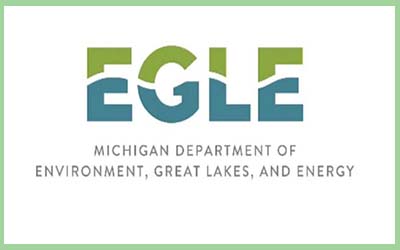The Office of Climate and Energy is asking members of the public for their insights about climate and how Michigan can move toward carbon neutrality by 2050. Two online public listening sessions have been scheduled, one on Earth Day, April 22, and the second on May 5.
The Department of Environment, Great Lakes and Energy (EGLE) through its Office of Climate and Energy is charged with formulating and overseeing implementation of the MI Healthy Climate Plan, a roadmap to reducing greenhouse gas emissions statewide, with input from the Council on Climate Solutions.
Details of the public listening sessions using the Zoom meeting platform:
- Thursday, April 22, at 10:30 a.m.; and Wednesday, May 5, at 6 p.m.
- Links to join either session are posted to the Michigan.gov/Climate webpage.
- Those who wish to speak should send an email to EGLE-ClimateSolutions@Michigan.gov with “Public Comment Request,” the date of the session at which you would like to speak and your name in the subject line. Those who send an email request will be allowed to speak first.
- Members of the public who do not submit their names ahead of time will still be allowed to make a comment.
- Each speaker will be limited to three minutes.
- Sessions are designed to gather comments and input from the public; organizers will not answer questions posed by attendees.
Individuals needing language assistance or accommodations for effective participation at the listening sessions should contact Kimber Frantz at FrantzK@Michigan.gov or 517-284-5035 at least seven days before the event to request language, mobility, visual, hearing, translation and/or other assistance.
Each listening session will begin with an overview of Gov. Gretchen Whitmer’s Executive Order 2020-182 that established the Council on Climate Solutions, an explanation of how it is structured and its role in advising EGLE and OCE on the development of the MI Healthy Climate Plan. The council’s input will be informed by the public comments at the listening sessions and guidance from five workgroups: Energy Production, Transmission, Distribution, and Storage; Buildings and Housing; Transportation and Mobility; Natural Working Lands and Forest Products; and Energy Intensive Industries.
The two scheduled public listening sessions will be recorded and posted in a timely manner to Michigan.gov/Climate.
Those who cannot attend the listening sessions can offer their topical comments at any time by sending an email to EGLE-ClimateSolutions@Michigan.gov.
The council is comprised of 14 state residents as well as representatives from nine state departments and agencies. EGLE Director Liesl Clark is the chair of the council, which is scheduled to meet publicly the fourth Tuesday of each month through the end of the year.
The MI Healthy Climate Plan is an effort to combat the impacts of climate change in Michigan. Climate change is having a detrimental impact on the state’s environment and economy and threatens the health and well-being of residents, with communities of color and low-income Michiganders bearing a disproportionate impact of climate disruptions. Gov. Whitmer has also signed Executive Directive 2019-12, in which Michigan joined the United States Climate Alliance, a bipartisan coalition of governors from 25 states devoted to pursuing the goals of the Paris Agreement.
EGLE does not discriminate on the basis of race, sex, religion, age, national origin, color, marital status, disability, political beliefs, height, weight, genetic information or sexual orientation in the administration of any of its programs or activities, and prohibits intimidation and retaliation, as required by applicable laws and regulations.
# # #











